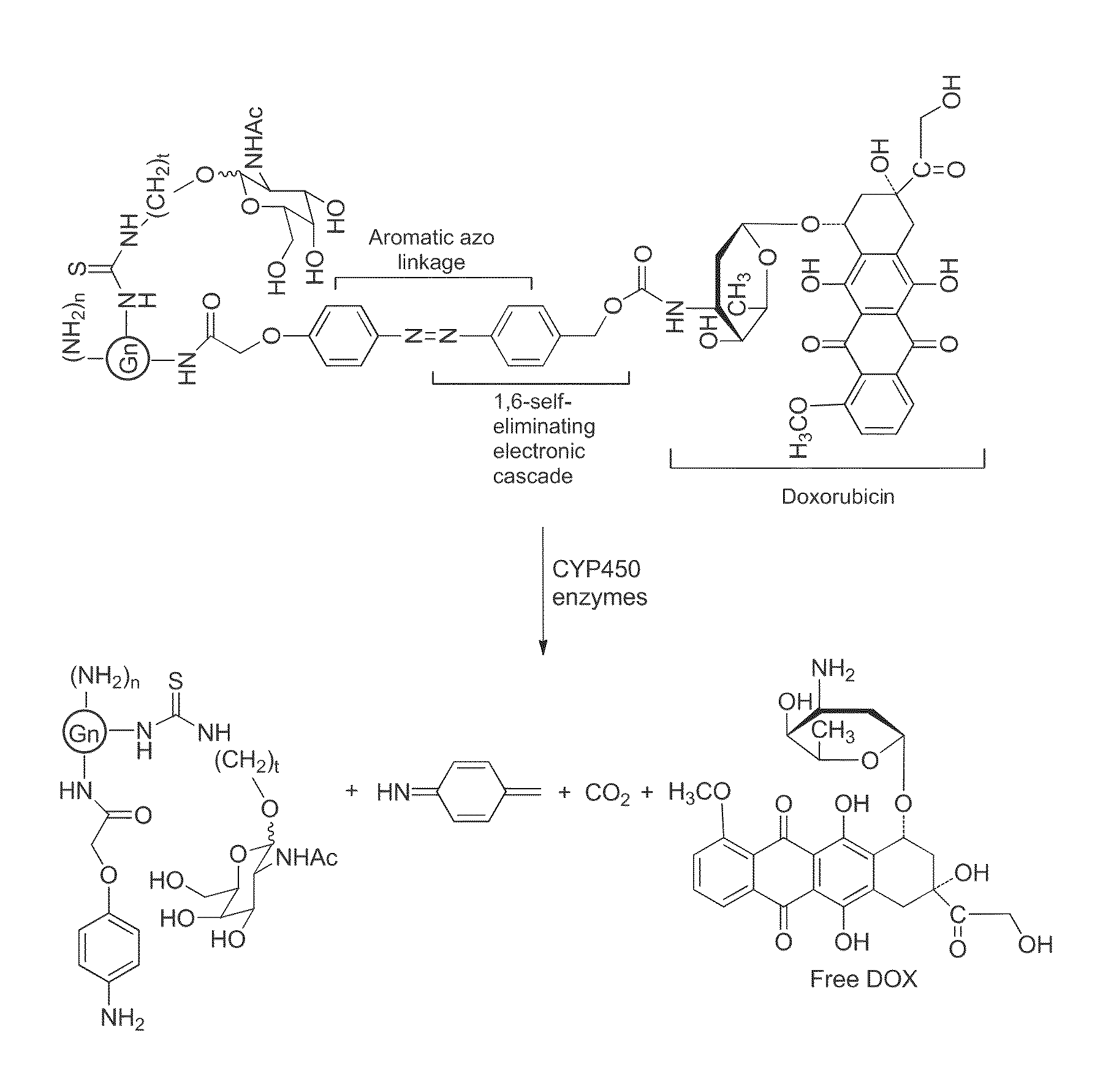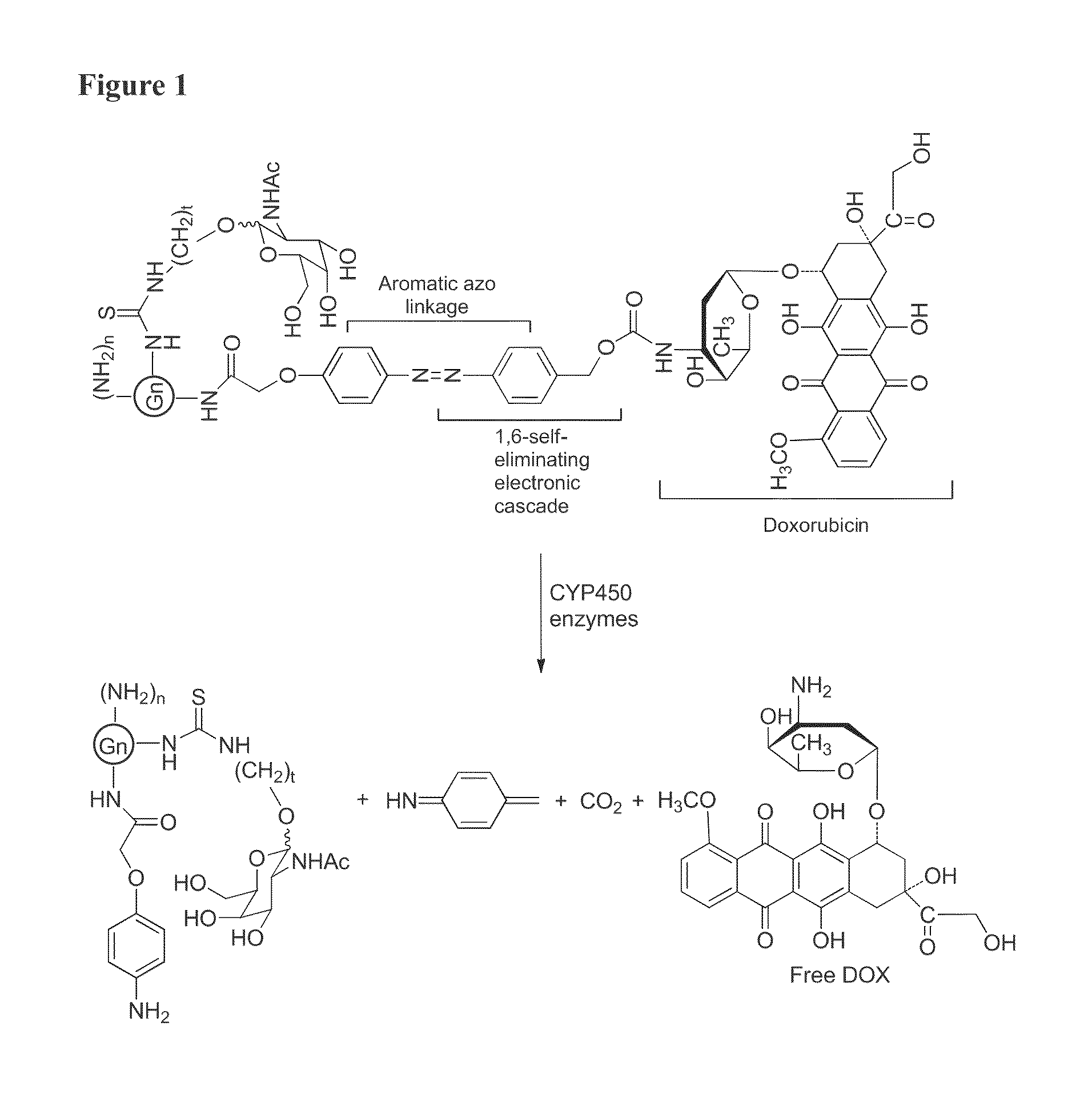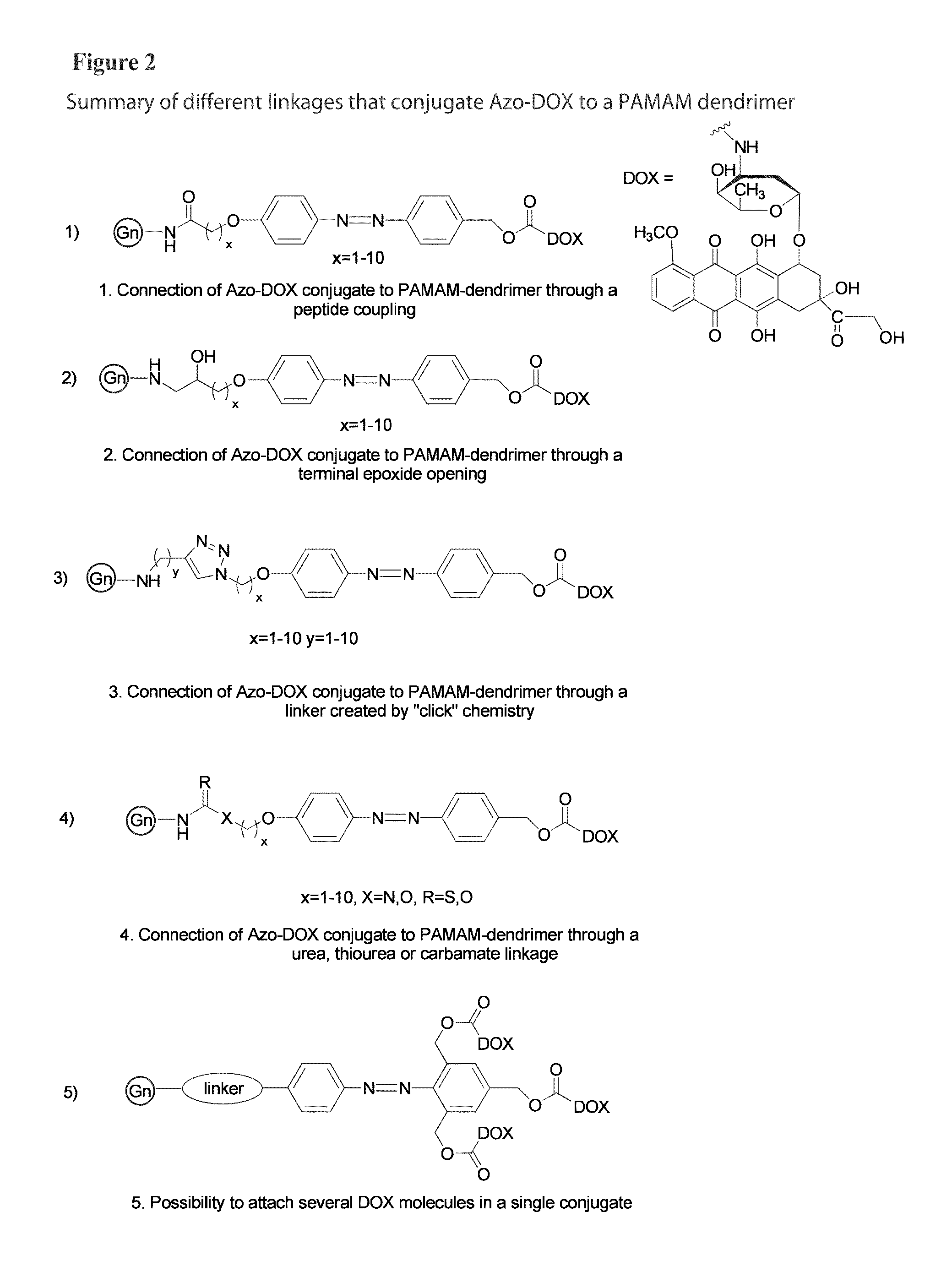Targeted dendrimer-drug conjugates
a dendrimer and drug conjugate technology, applied in the field of dendrimer conjugates, can solve the problems of high invasiveness with limited specificity, lack of effective formulation strategies, and the majority of new molecules that do not progress, and achieve enhanced therapeutic activity, enhanced solubility of hydrophobic drug molecules, and high local concentration of drug molecules.
- Summary
- Abstract
- Description
- Claims
- Application Information
AI Technical Summary
Benefits of technology
Problems solved by technology
Method used
Image
Examples
example 1
Selection of the PAMAM-NH2 Carrier
[0218]Based on our earlier results, small PAMAM-NH2 dendrimers with an ethylene diamine (EDA) core (1-5 nm diameter) distribute quickly to normal tissues (E1-Sayed et al. (2001) Pharmaceutical Research. 18:23). Consequently, larger PAMAM-NH2 dendrimers with a 1,4-diamino butane (DAB) core (5-7 nm diameter) are used in the present invention as these have proved to preferentially extravasate into tumors (D'Emanuele et al. (2005). Adv. Drug Deliv. Rev. 57:2147). In order to select an effective PAMAM-NH2 carrier, the effect of size, molecular weight and generation number on biodistribution of cationic PAMAM-NH2 dendrimers in a tumor-bearing nude mouse model was investigated.
[0219]G5 and G6 PAMAM dendrimers were labeled using [14C]Iodoacetamide followed by purification of [14C]G5 and [14C]G6 PAMAM dendrimers by dialysis and characterization using gel permeation chromatography. These dendrimers were analyzed in an in vivo tumor model, in which 1×106 HepG2...
example 2
Synthesis of Fluorescently-Labeled NAcGal-PAMAM Conjugates
[0222]Fl-labeled N-acetyl galactosamine (NAcGal)-PAMAM dendrimer conjugates, such as the composition shown in FIG. 4A, were synthesized via non-degradable linkages with an average of 6 fluorescein molecules per dendrimer according to the scheme set out as FIG. 7F. NAcGal ligands can be attached to G5 PAMAM dendrimers by a number of different protocols (FIGS. 6A and 6B) employing a number of conjugation techniques including peptide coupling (e.g. short and long peptide linkers) (FIGS. 6A and 6B), thiourea linkage (FIG. 6C), “click” chemistry (FIG. 6D) or Shiff base formation (FIG. 6E).
[0223]In order to synthesize this conjugate with a thiourea linkage, NAcGal was reacted with a hydroxyalkyl bromide, followed by acetylation and conversion of the bromine moiety to an azide. Reduction of the azide to an amine furnished the NH2 terminated NAcGal ligands for reaction with carbondisulfide to produce the isothiocyanate derivatized li...
example 3
Synthesis of Radioactively Labeled Acetylated Conjugates
[0231]The dendrimer conjugates were radiolabeled to study their biodistribution and accurately measure their concentration in different tissues. Briefly, 14C-iodoacetamide was mixed with different generations of dendrimers in sodium bicarbonate buffer (pH 10) for 12 hours. The reaction mixtures were then fractionated using size exclusion chromatography (SEC) to collect pure 14C-labeled dendrimers. The specific activity and number of 14C-radionuclides per Gn were calculated using liquid scintillation counting (Bubnis & Ofner, Analytical Biochemistry 297 (1992) 129-133).
Synthesis of [14C]G5-(NHAc)103 Conjugates
[0232]To generate [14C]G5-(NHAc)103 conjugates, 20 mg of G5-NH2 dendrimer was dissolved in dry methanol and reacted with a 103 fold molar concentration of acetic anhydride in the presence of triethylamine (TEA) and stirred for 16 hours at room temperature to yield 18.1 mg of G5-(NHAc)103 after purification (90.5% yield) (FI...
PUM
| Property | Measurement | Unit |
|---|---|---|
| molecular weight | aaaaa | aaaaa |
| diameter | aaaaa | aaaaa |
| diameter | aaaaa | aaaaa |
Abstract
Description
Claims
Application Information
 Login to View More
Login to View More - R&D
- Intellectual Property
- Life Sciences
- Materials
- Tech Scout
- Unparalleled Data Quality
- Higher Quality Content
- 60% Fewer Hallucinations
Browse by: Latest US Patents, China's latest patents, Technical Efficacy Thesaurus, Application Domain, Technology Topic, Popular Technical Reports.
© 2025 PatSnap. All rights reserved.Legal|Privacy policy|Modern Slavery Act Transparency Statement|Sitemap|About US| Contact US: help@patsnap.com



